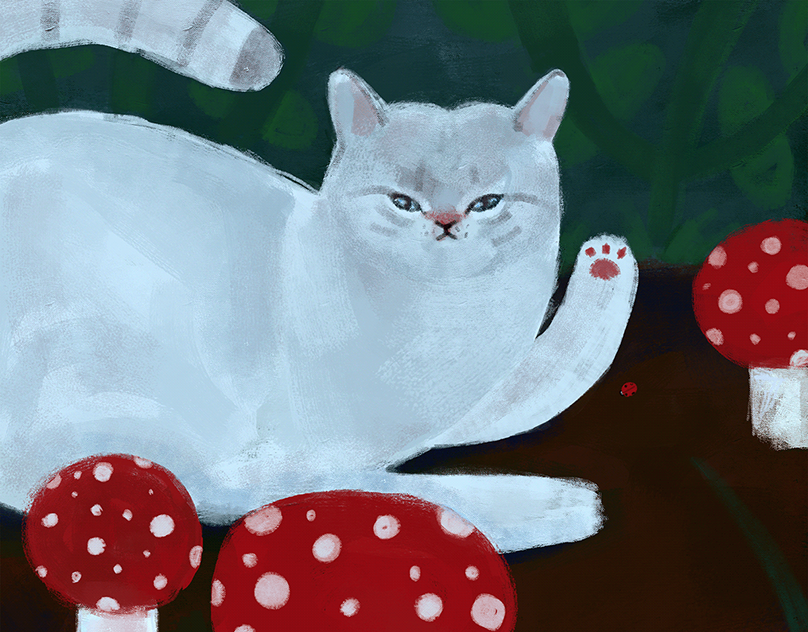Censorship is a topic that is not discussed in our society until a major event that involves censorship occurs, usually in the form of book bans and book burnings. Many people are not even aware that censorship still occurs in the United States.
This boxed set contains a series of four popular young adult novels that have been banned or challenged across the United States for a variety of reasons. Each of these four novels in this series were chosen due to their frequency in being challenged, as well as for their recognition as exceptional works of literature for their age group. The back of each books' dust jacket features a quote from the author on censorship as well as an explanation on why that book is included.
Additionally included is a timeline of censorship in the past century and an infographic poster that can be used to inform and educate people on censorship in the 21st century and what they can do to take a stand against it.
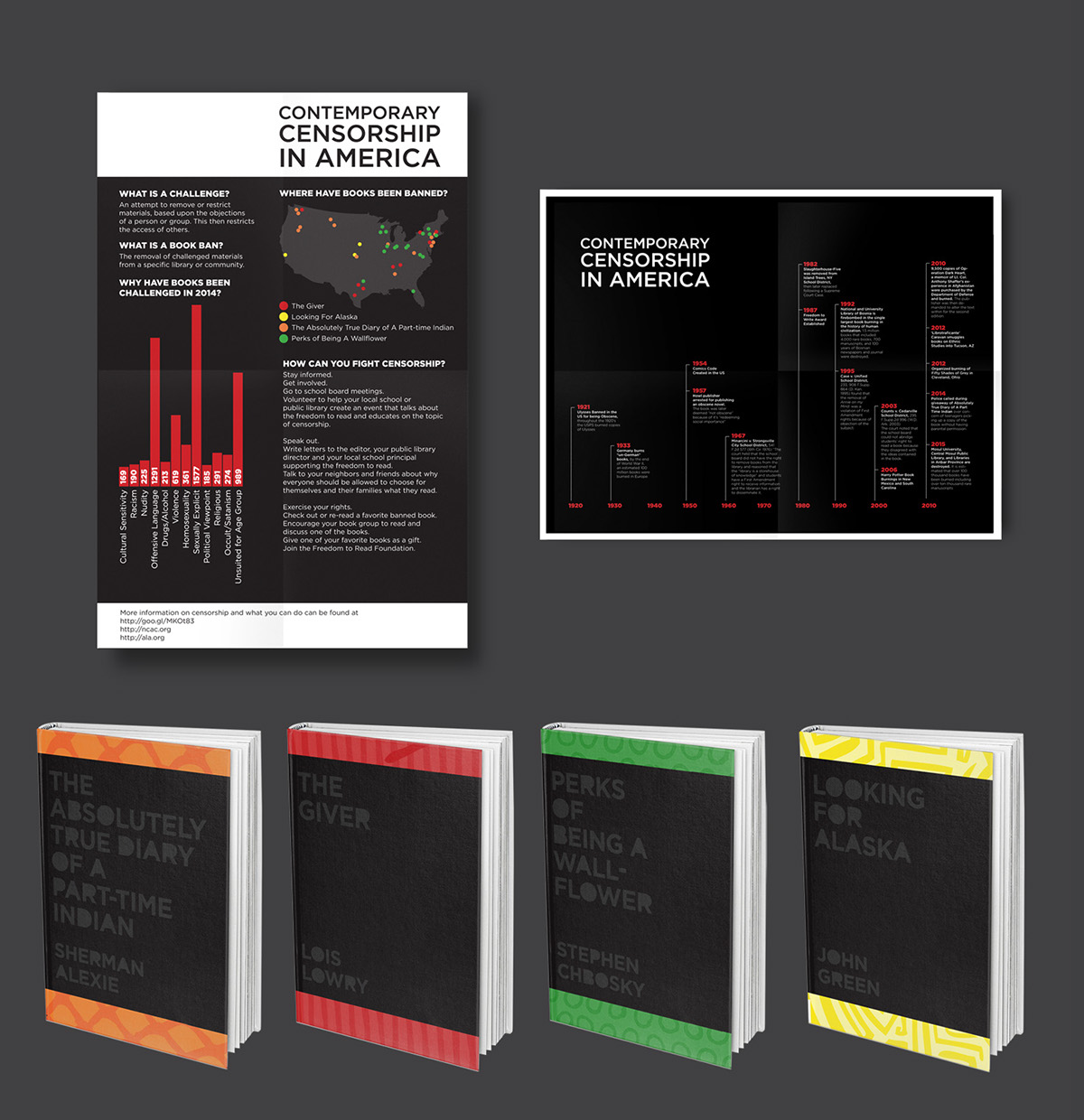
Informational Poster including definitions of challenges and banned books to dispel confusion as well as explaining why censorship occurs and what you can do to "fight" censorship. Additionally, there is a map to show where each of the books in the box set has been banned or challenged in the United States.
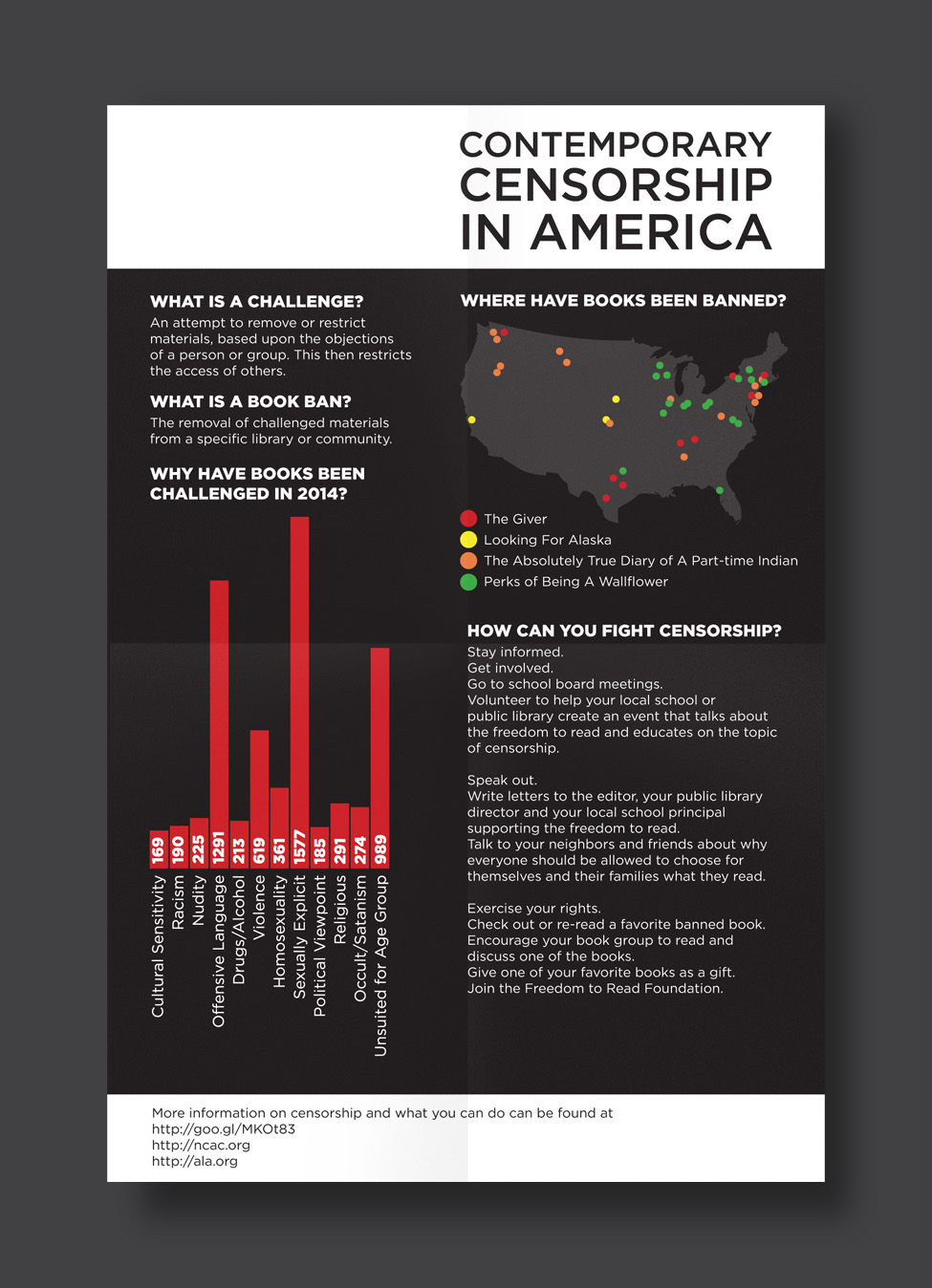
In order to educate readers that censorship is still occuring, even in the 21st century, included in the box set is a timeline of cases of censorship in the past century that occurred in the United States or have effected the United States. These include but aren't limited to: legal cases involving the freedom to read, book burnings (happening as recently as 2014), and actual government mandated book bans.
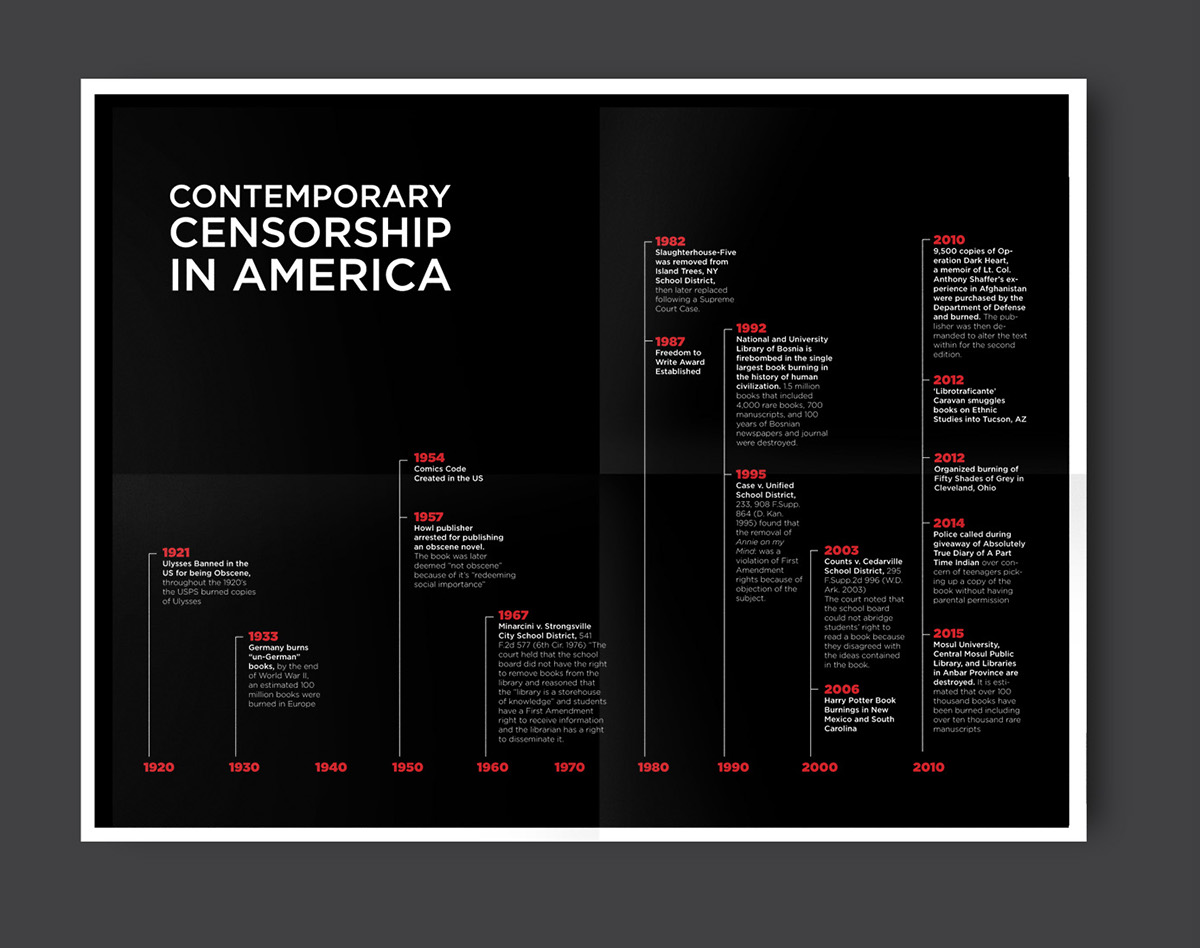
Mockups of the books with (right) and without (left) dustjackets.
The reverse of the dust jacket for Looking for Alaska reads:
“I’m not saying that literature is infinitely accessible or that all work crosses all cultural boundaries. . . . If anything, reading across cultures is vital because reading critically is an act of empathy and not an act of identification.”
— John Green
— John Green
In 2006, Looking for Alaska was awarded the Michael L. Printz Award for literary excellence in young adult literature. However, since 2008, there have been many challenges to the novel. The majority of these challenges have been based on “suggestive and/or offensive language.”
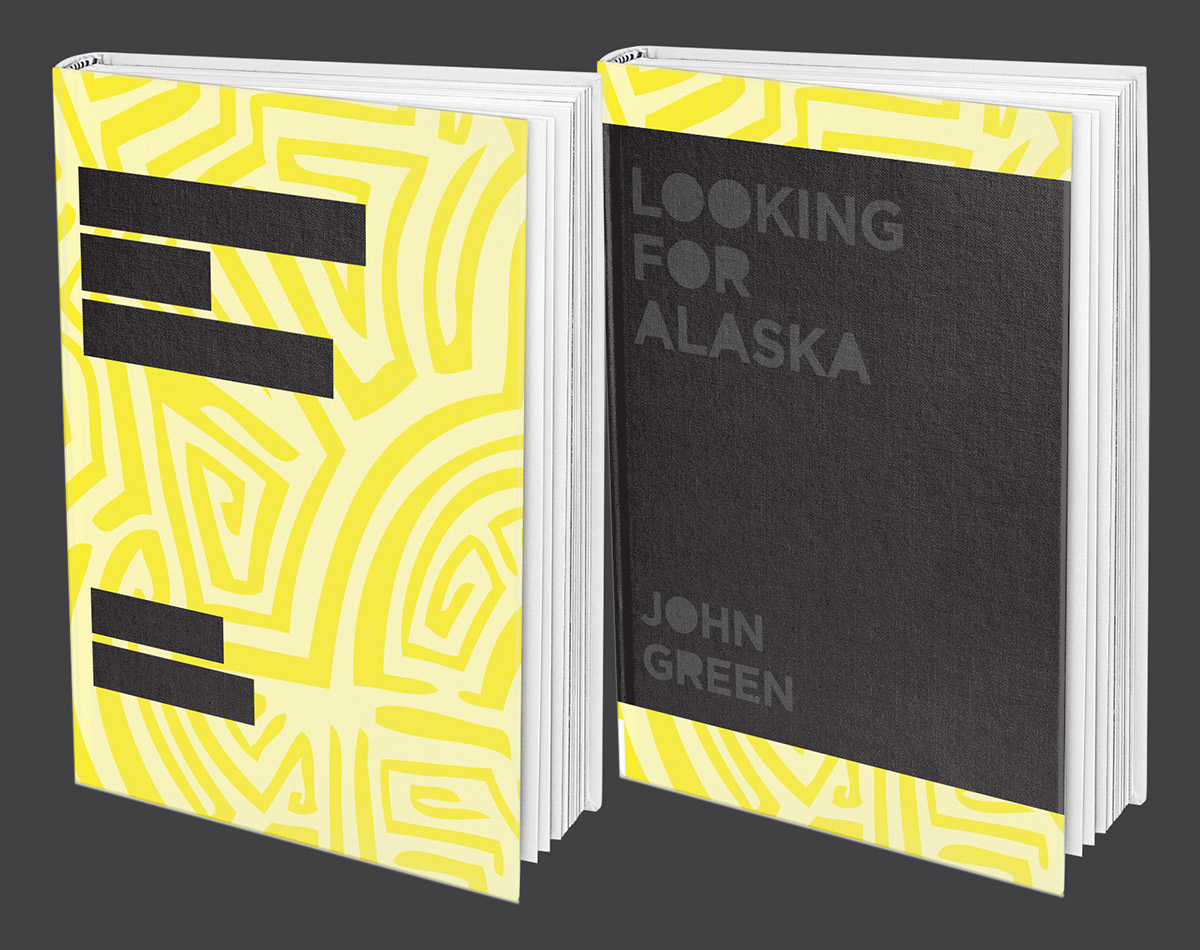
The reverse of the dust jacket for Perks of Being A Wallflower reads:
“Banning books gives us silence when we need speech.
It closes our ears when we need to listen. It makes us blind when we need sight.”
— Stephen Chbosky
— Stephen Chbosky
Since it was first published in 1999, Perks of Being a Wallflower has been listed on many school reading lists for its relatability to a teenage audience. At the time of it’s release, Publishers' Weekly stated that the book dealt with
“standard teenage issues.” However, Perks of Being a Wallflower has appeared on the American Library Association’s banned books list on and off since 2004 for being “unsuitable for age group,” containing drugs and alcohol, as well as “offensive language.”
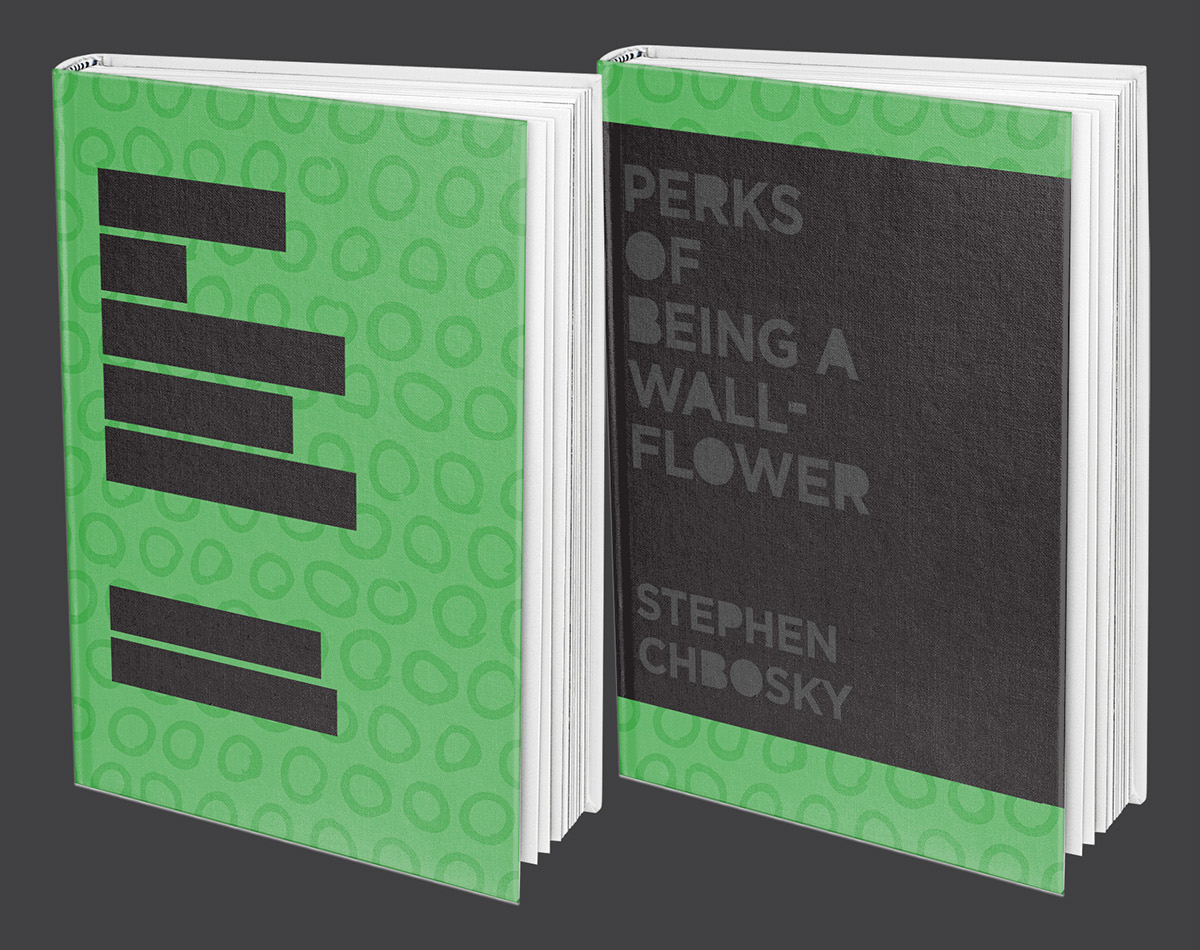
The reverse of the dust jacket for The Absolutely True Diary of A Part-Time Indian reads:
“I believe in any kid’s ability to read any book and form their own judgments.
It’s the job of a parent to guide his or her child through the reading of every book imaginable.
Censorship of any form punishes curiosity.”
— Sherman Alexie
— Sherman Alexie
In 2007, The Absolutely True Diary of a Part-Time Indian was given The National Book Award for Young People’s Literature. This award is given to recognize outstanding literary work published in the past year for young adults.
Since 2010, the novel has been in the American Library Association’s top ten banned books list. In 2014, the book was the most challenged book in America for “offensive language” and being “unsuitable to age group.”
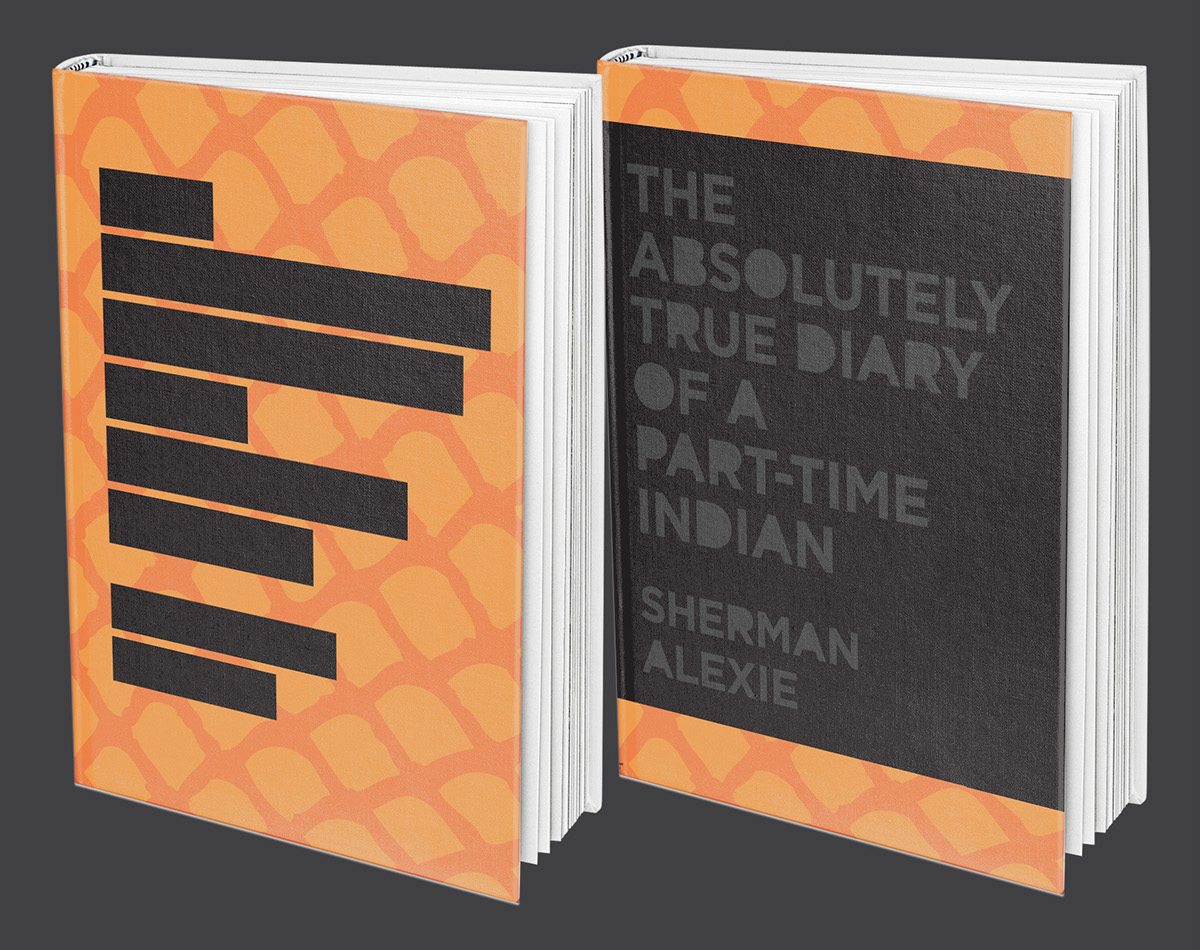
The reverse of the dust jacket for The Giver reads:
“Submitting to censorship is to enter the seductive world of The Giver:
the world where there are no bad words and no bad deeds.
But it is also the world where choice has been taken away and reality distorted.
And that is the most dangerous world of all.”
— Lois Lowry
And that is the most dangerous world of all.”
— Lois Lowry
In 1996, The Giver was awarded the Newbery Medal for the most distinguished contribution to
American literature for children. From 1990-1999, The Giver was the 11th most challenged book.
According to the Office of Intellectual Freedom, the main reason for being challenged was for being
“unsuitable for age group” due to its depiction of a utopian society.
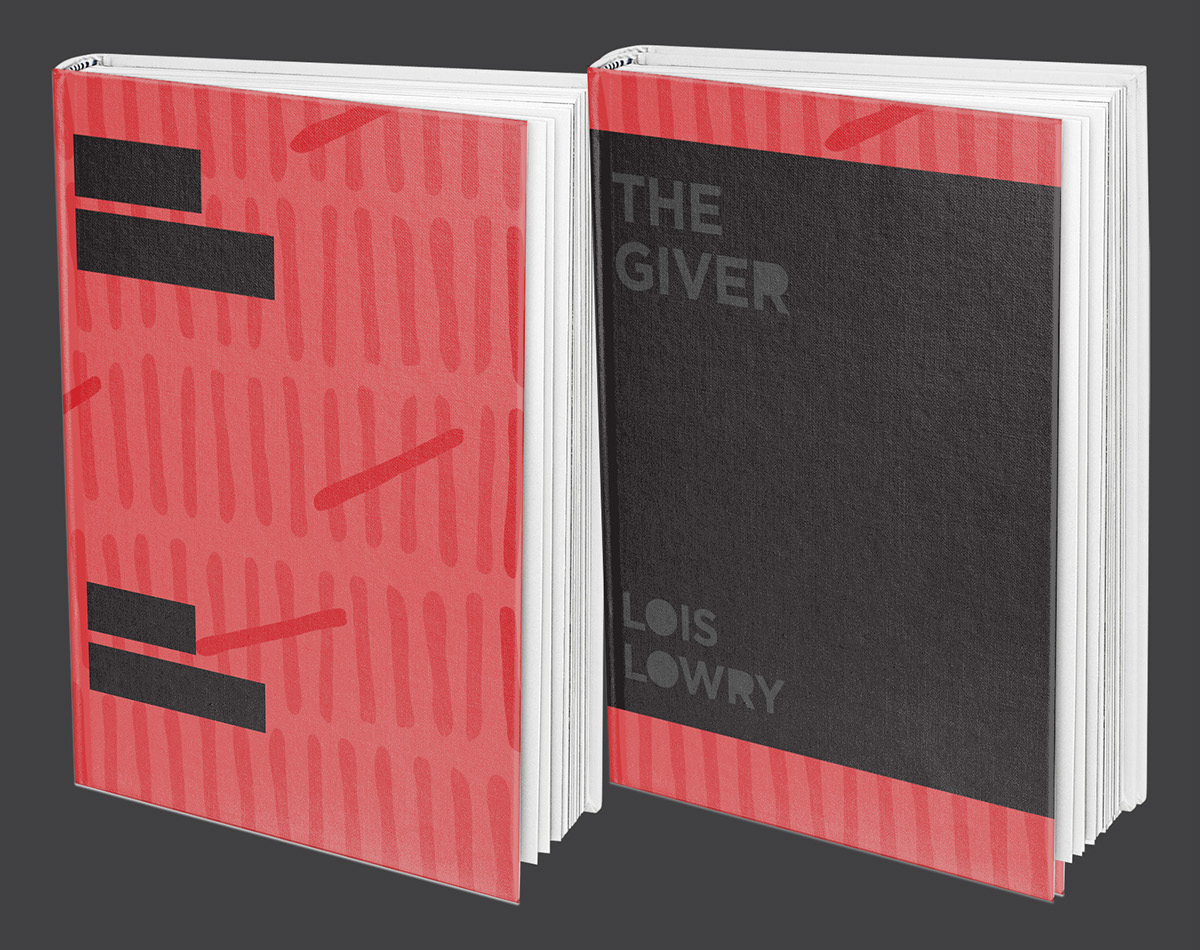
Physical handbound books with acetate dust jackets. The use of acetate reveals the title of each of the books from the censored hardcover and attracts fingerprints so that each book tells its own story in the form of ownership.
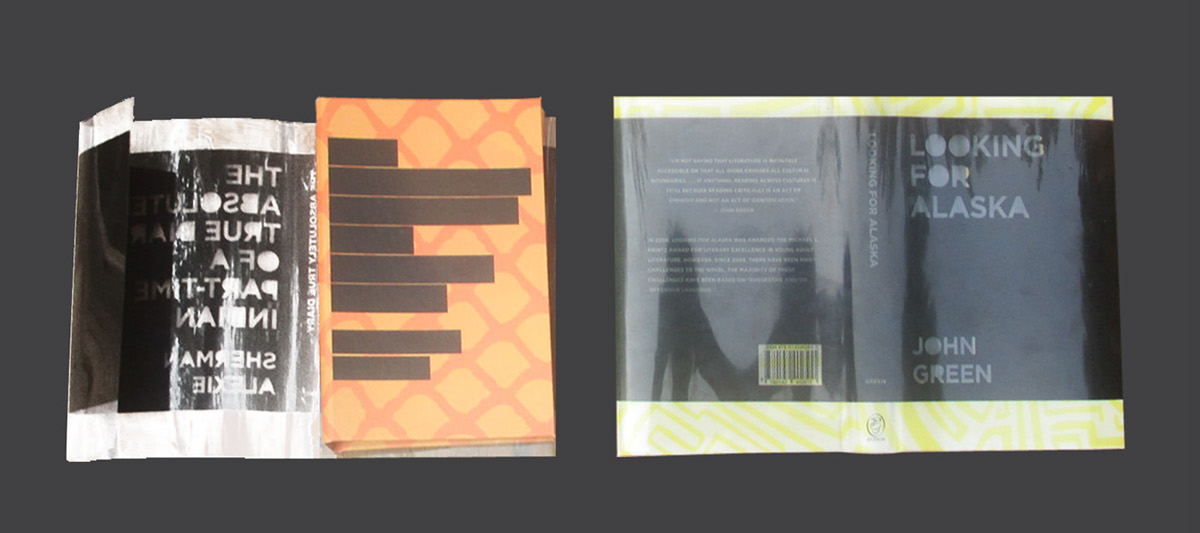
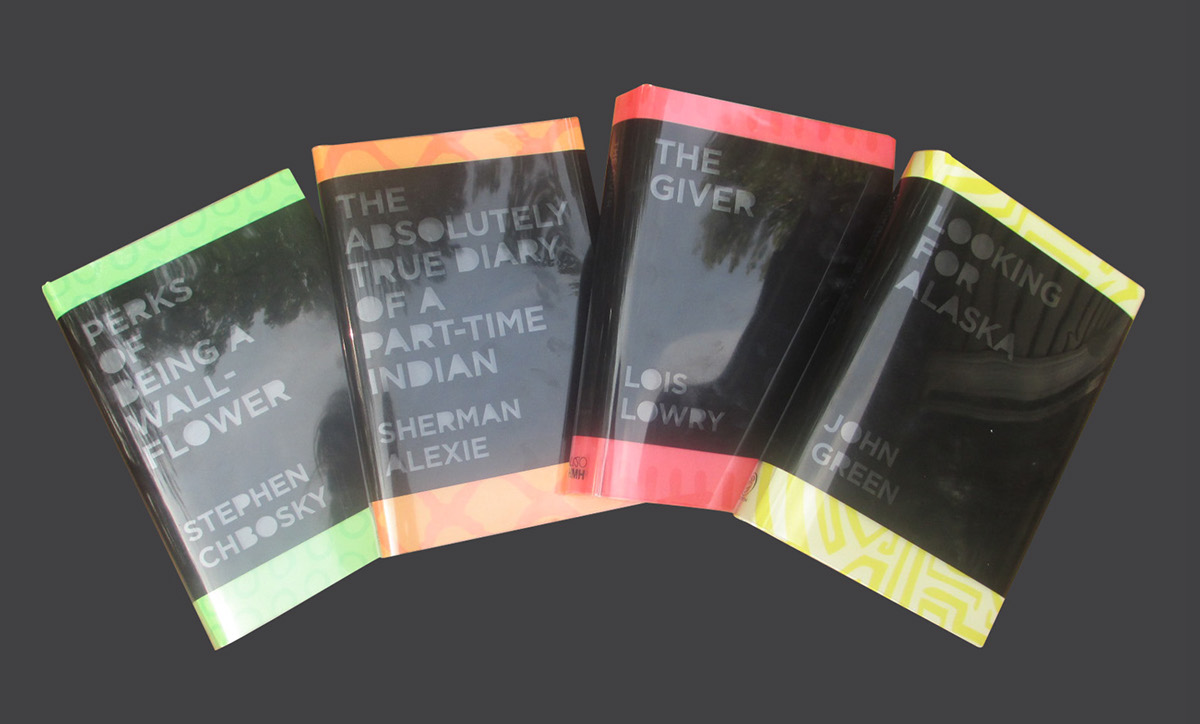
Larger copies of the infographic poster and timeline as well as bookcover and dust jacket mechanicals can be provided upon request




